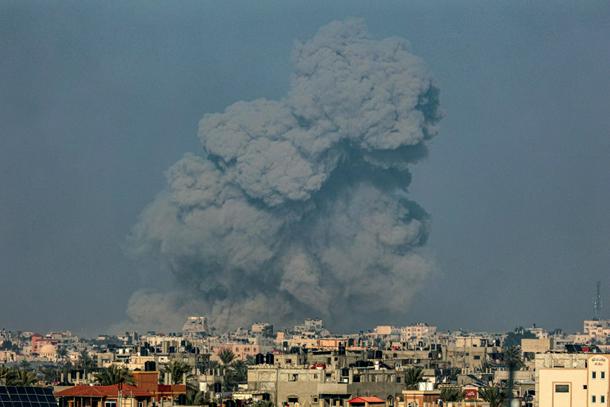
An AFP journalist saw plumes of dark smoke towering above Khan Yunis
Gaza Strip (Palestinian Territories) (AFP) - Israel pressed its southward offensive against Hamas in Gaza on Friday as US President Joe Biden and Prime Minister Benjamin Netanyahu held their first call in weeks amid tensions over post-war plans.
At Al-Nasser hospital in Khan Yunis, Gaza’s main southern city, a child with a bloodied face cried on a gurney. Ambulances arrived with the injured and the dead while automatic weapons fire sounded beyond.
An orange fireball flashed above rooftops and an AFP journalist saw plumes of dark smoke towering above the city.
Metawei Nabil, recently released by Israeli forces and bearing scars on his arms, told AFP he fled Beit Lahia in northern Gaza only “to face death” in devastated Rafah near the Egyptian border.
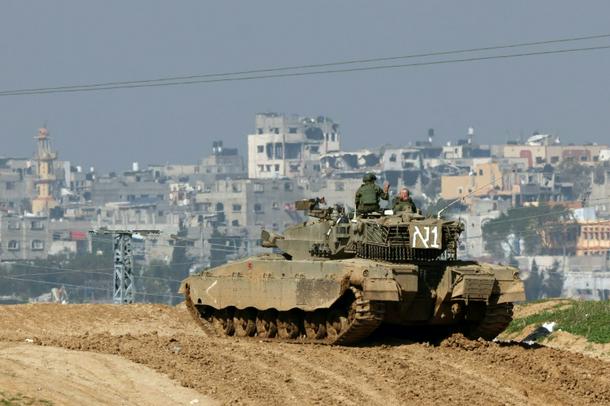
An Israeli tank, photographed from southern Israel, overlooks damaged buildings in the Gaza Strip
Israel says it still expects the war, which began with unprecedented Hamas attacks on October 7, to continue for months.
The United Nations says it has displaced roughly 85 percent of Gaza’s people and warns improved aid access is needed urgently as famine and disease loom.
The White House on Friday announced that Israel will allow flour shipments for Palestinians through its port of Ashdod, following Biden and Netanyahu’s call.
A communications blackout that lasted a week – the longest of the war according to a monitor – amplified the challenges, although the telecommunications ministry and operator Paltel said internet services were starting to return on Friday.
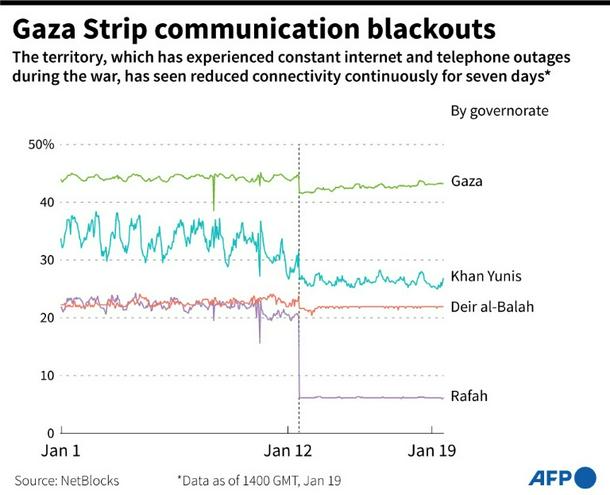
Gaza Strip communication blackouts
The October 7 attacks resulted in the deaths of about 1,140 people in Israel, mostly civilians, according to an AFP tally based on official Israeli figures.
Israel has vowed to destroy Hamas in response. Its relentless air and ground offensive has killed at least 24,762 Palestinians, around 70 percent of them women, young children and adolescents, according to Gaza’s health ministry.
- Among the rubble -
Key ally the United States provides Israel with billions of dollars in military aid but the countries have disagreed over the post-war future, with tensions reportedly growing.
Biden told Netanyahu in a Friday call – their first in weeks – that he still backs future Palestinian statehood, the White House said.
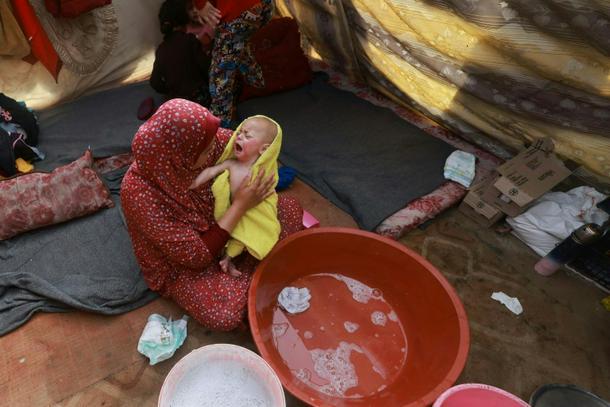
UNICEF said nearly 20,000 babies in Gaza have been born 'into hell' since October 7
Washington has stressed the creation of a Palestinian state as the only way to guarantee Israel’s long-term security.
But Netanyahu’s hard-right government is resolutely opposed. Israel “must have security control over the entire territory west of the Jordan River”, which “contradicts the idea of (Palestinian) sovereignty”, the Israeli leader said on Thursday.
With Israel’s military offensive moving farther south in the territory, which is about 40 kilometres (25 miles) long, some residents in northern Gaza have begun returning home to what remains of their neighbourhoods.
In Gaza City’s Rimal district, “everything is destroyed and the people are dying of hunger,” said Ibrahim Saada, who said he lost his whole family.
Israel’s army in early January said the Hamas command structure in northern Gaza had been dismantled, but groups of isolated fighters still confront troops there.
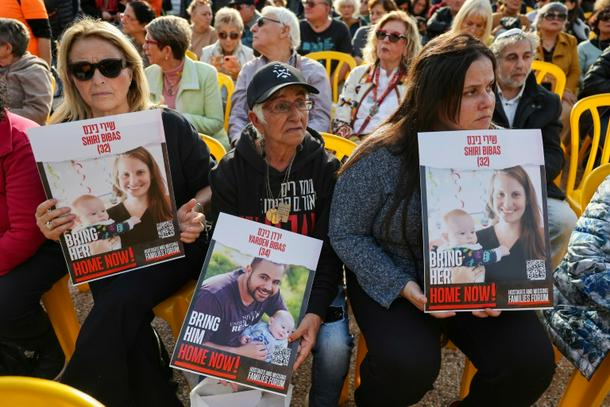
Militants seized about 250 hostages, around 132 of whom Israel says remain in Gaza
The army reported 194 troop deaths since the beginning of ground operations in Gaza in late October.
Militants also seized about 250 hostages, around 132 of whom Israel says remain in Gaza. At least 27 hostages are believed to have been killed, according to an AFP tally based on Israeli figures.
A Hamas-allied militant group in Gaza released a video on Friday showing an Israeli hostage who they said was killed in an Israeli strike.
The video was undated and could not be independently verified.
- Huthi missiles -
The Gaza war has spilled into the surrounding region where Iran-aligned groups have carried out attacks, with regular exchanges of cross-border fire between Israeli forces and Lebanon’s Hezbollah movement.
On Friday the Israeli army said it struck Hezbollah posts and infrastructure in southern Lebanon and intercepted a drone that crossed from Lebanon into Israel’s maritime area.
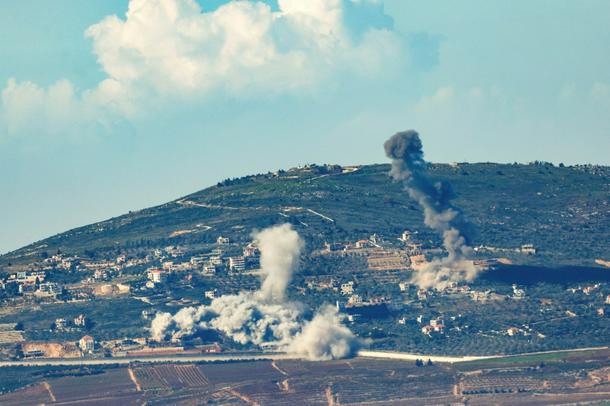
There have been regular exchanges of fire between Israeli forces and Lebanon's Hezbollah movement
Lebanon’s official news agency NNA said Israel’s air force destroyed three houses in the village of Kfar Kila, while Hezbollah claimed three attacks against Israeli positions.
Hezbollah’s number two warned Israel would “receive a real slap in the face” if it expanded the conflict, while Defence Minister Yoav Gallant told soldiers Israel may “have to achieve security by force”.
A wider conflagration has so far been averted but such fears have also been accentuated by Yemeni Huthi rebels’ attacks on Red Sea shipping, prompting retaliatory strikes by US forces.
The Huthis are targeting what they deem Israeli-linked vessels in support of Palestinians in Gaza.
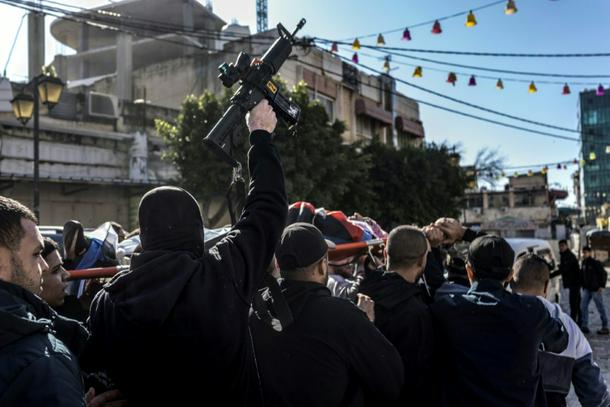
Violence has also surged in the occupied West Bank
Violence has also surged in the occupied West Bank, where Israeli troops and settlers have killed more than 360 people since October 7, according to the Palestinian health ministry.
Palestinian news agency Wafa reported Israeli fire in Al-Mazraa al-Sharqiya, east of Ramallah, killed a 17-year-old Palestinian. His father and a local official said he had a US passport.
US National Security Council spokesman John Kirby said the White House was “seriously concerned” about the report.